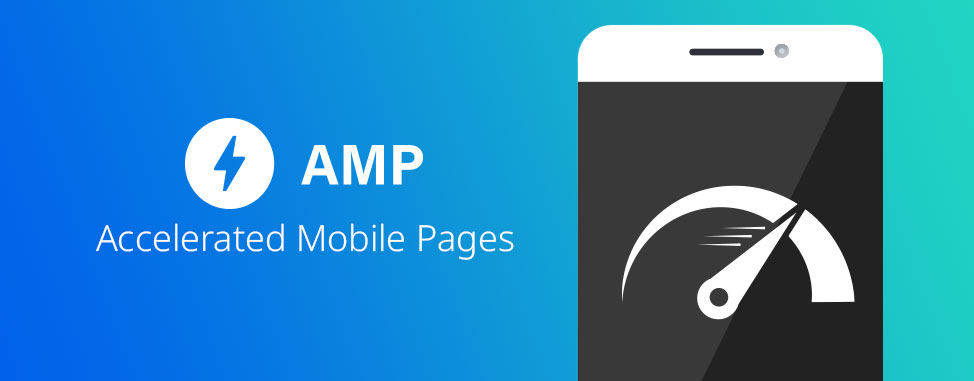
Accelerated Mobile Pages: Built for Speed
In 2019, publishing fast loading web pages designed for mobile devices is more important than ever. Google has spearheaded the Accelerated Mobile Pages (AMP) project to help with this very issue.
According to a study done by Google, 53% of mobile users will leave a website that has a load time of more than 3 seconds. Combine that with mobile devices making up nearly 50% of global traffic and it becomes clear that website speed for mobile is important for any site looking for more visitors.
What is AMP?
Accelerated Mobile Pages project (AMP project) is an open source framework developed by Google and Twitter and first made available in 2015. Its goal is simple: make mobile pages load as quickly as possible.
Google promises that AMP will make mobile browsing up to 85% faster. This is accomplished by stripping away ‘unnecessary’ code from a page and reorganizing elements so that they load in the most efficient way. For instance, images will not load until you scroll them into view.
But speed is not the only value AMP adds to a web page. Read on to learn more.
Why is AMP important?
AMP speeds up web pages for mobile devices, providing a better user experience leading to more users viewing and staying on a web page. This primary function is important but AMP does more than just this.
In March of 2018 Google announced its mobile-first indexing initiative. Google will first use the mobile version of your website for indexing and ranking purposes, before it takes the desktop version into consideration. Google has stated that AMP itself is not a ranking factor, but it does increase page speed which is a ranking factor. As such, AMP can affect your website’s ranking indirectly.
Another reason to think AMP can improve ranking is from the user’s side. When performing a mobile search, web pages that use AMP display a little lightning icon. As AMP grows in popularity, more people will understand that this icon means instant access to information. This will in turn get more clicks which is an important ranking factor.
But educated guesses are not the only reason to think AMP can help improve ranking and get more traffic. Several case studies have shown AMP to improve the amount of times your web page is shown on search results and the percentage of people choosing to click on it. These are both important ranking factors, so the studies do point to AMP being a benefit for your site.
How does AMP work?
Here are 6 ways that AMP improves page speed.
Prioritize resource loading — AMP focuses on loading the part you first see when you enter a web page. Instead of attempting to load the whole page at once before showing it to you.
Asynchronous scripts — All AMP scripts are loaded in at the same time, so that one script doesn’t have to wait for another to finish before being loaded onto the page.
Custom AMP elements — Custom JavaScript can really slow down a page. AMP only allows certain JavaScript within specific custom built elements so other elements aren't waiting on the JavaScript before they can load.
Static layout — Images, iframes or ads are made to state their location and size in the HTML script (the primary code of a web page). This allows the layout to be loaded pretty much instantly and without slowing down due to images and other elements being resized or relocated because of multiple competing scripts.
Inline CSS — Cascading style sheets (CSS) define the look and feel of a web page. Usually this is one or several separate documents connected to a web page. AMP loads CSS inline with the HTML, reducing load time by removing the step of having to go get, or ‘request’, the CSS.
Web font optimization — A typical web page waits to download the fonts until after other elements , like CSS, are downloaded. AMP switches this by downloading fonts first before gathering any other resources for the page.
You can find out some of the other speed factors on the official AMP website.
AMP and WordPress
For many websites, applying AMP will require a fair amount of coding knowledge. For coders, you can find free AMP courses on the official site. Non-coders using WordPress have a different option: Plugins.
There are two plugins that are currently leading the pack. The official AMP plugin (free) and AMP for WP (freemium). The official AMP plugin is quite simple and easy to use, but it doesn’t have much flexibility. But WordPress’s most popular SEO plugin provider, Yoast, has made additions to its own plugins to enhance the official AMP plugin. If you download the Yoast SEO plugin and the Glue for Yoast SEO & AMP plugin, the flexibility is increased but depending on the complexity of your website it may fall short of your needs.
The AMP for WP plugin provides many more options to make changes to mobile accelerated web pages but more advanced features need to be purchased. However, with so many five star reviews, the free version is certainly worth a look.
Is AMP the future of mobile search?
As technology gets more efficient, people are becoming less patient. If this trend remains the same, then providing fast access to your website is only going to become more important. As AMP was created to solve this problem it is safe to say that it’s the future mobile search. So the next time you are thinking of ways to improve your website, give AMP some serious consideration.
Interested in more information on how to get ahead online? Take a look at our Beginner’s Guide to SEO series or our article on Increasing your Google Visibility with Rich Results. If you have an online project you want to get up and running fast, then our Managed WordPress Hosting solutions are designed for just that!
Happy Hosting,


Also on the WHC Blog

Beginner’s Guide to SEO: 5 On-Page SEO Tips
In part three of our ongoing series, SEO for Beginners, we look at changes you can make to a single web page to improve its ranking on search engines. What is On-Page SEO? On-page SEO helps improve your search...
Read full article
Beginner's Guide to SEO: Keyword Research
In our continuing series Beginner’s Guide to Search Engine Optimization (SEO) we started by introducing the 3 types of SEO that can improve a website’s search engine rankings. Before diving deeper into those methods,...
Read full article





